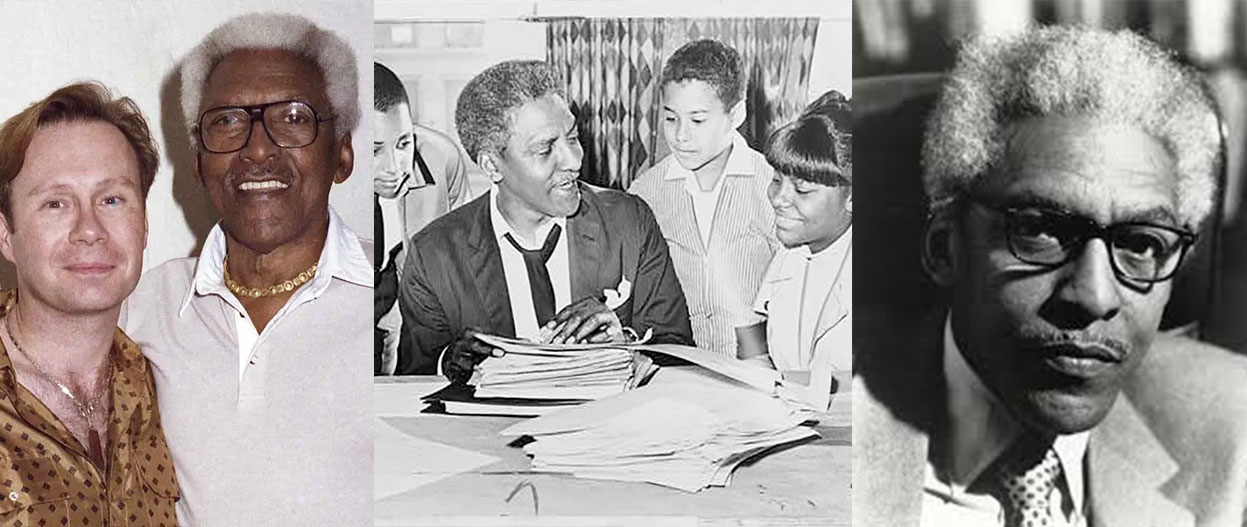
Bayard Rustin was an American political activist and a key figure in social movements for civil rights, socialism, nonviolence, and gay rights. Notably, Rustin was the driving force behind the March on Washington for Jobs and Freedom organization in 1963, a pivotal event in civil rights history.
Later in life, while still dedicated to securing workers’ rights, Rustin aligned with ideological neoconservatism, earning posthumous praise from President Ronald Reagan. On November 20, 2013, President Obama posthumously awarded Rustin the Presidential Medal of Freedom.
Rustin was born on March 17, 1912, and was raised by his grandparents, Janifer and Julia Rustin, in West Chester, Pennsylvania. His commitment to nonviolence started during his Quaker upbringing. It was influenced by his grandmother’s involvement in the National Association for the Advancement of Colored People, which led to visits by black community leaders such as W. E. B. Du Bois and Mary McLeod Bethune to the Rustin home. After graduating from West Chester High School, Rustin intermittently attended Wilberforce University, Cheyney State Teachers College, and City College of New York.
Rustin was a gay man who faced criticism over his sexuality, so he often advised other civil rights leaders behind the scenes. In the 1980s, he became a public advocate for gay rights, speaking at events supporting human rights.
Rustin became a key advisor to Martin Luther King during the Montgomery bus boycott. He first visited Montgomery in February 1956 and published a ‘Montgomery Diary.’ Upon observing a meeting of the Montgomery Improvement Association, he wrote: “As I watched the people walk away, I had a feeling that no force on earth can stop this movement. It has all the elements to touch the hearts of men”.
